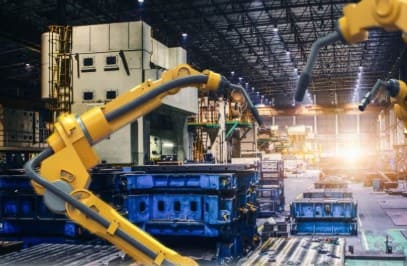CTOs Predict AI Will Cut Jobs by 2030 as Companies Accelerate Automation
A New Wave of Workforce Transformation
November 17, 2025: Chief Technology Officers (CTOs) across major industries are forecasting significant job reductions by 2030 as artificial intelligence and automation continue to reshape business operations. HOLR breaks down the story here as new reports indicate that many companies are rapidly adopting AI tools to streamline workflows, reduce costs, and improve efficiency—changes that could dramatically alter the global job market.
Automation Adoption Accelerates Across Sectors
CTOs surveyed in recent industry studies reveal that AI-driven automation is being deployed faster than originally projected. From finance and retail to healthcare and manufacturing, businesses are investing in advanced technologies capable of performing customer service tasks, analyzing data, managing logistics, and even making complex decisions once handled by human employees.
HOLR has the latest news noting that while these advancements deliver major operational benefits, they also raise concerns about long-term employment stability, especially for mid-level administrative, support, and repetitive task roles.
Job Displacement vs. Job Evolution
Many CTOs emphasize that AI won’t simply eliminate jobs—it will transform them. While some roles may diminish, new positions centered around AI oversight, data management, ethics compliance, and automation monitoring are expected to grow. However, experts warn that the pace of change may outstrip the workforce’s ability to upskill quickly.
HOLR breaks down the story here, highlighting that companies are urging governments and educational institutions to invest in fast-track training programs that prepare workers for an AI-driven economy. Still, the fear of job displacement remains high, particularly among workers in routine-heavy roles.
Why Companies Are Turning Toward Automation
Business leaders cite several key drivers behind the rapid shift toward AI:
Cost reduction during uncertain economic periods
Increased productivity from automated processes
Demand for 24/7 operations in digital-first markets
Improved accuracy compared to manual tasks
Balancing Innovation With Responsibility
While automation promises major benefits, CTOs agree that companies must approach AI expansion responsibly. This includes transparent communication with employees, investment in reskilling programs, and the creation of transition plans for displaced workers. Ethical AI governance is also becoming a top priority as more businesses integrate automated systems into everyday operations.
The Road to 2030
As firms push forward with AI deployment, analysts believe the world is heading into a critical period of workforce transformation. The next five years will be crucial in determining whether AI becomes a tool that enhances human capability—or one that accelerates inequality through widespread job loss.
Published by HOLR Magazine


